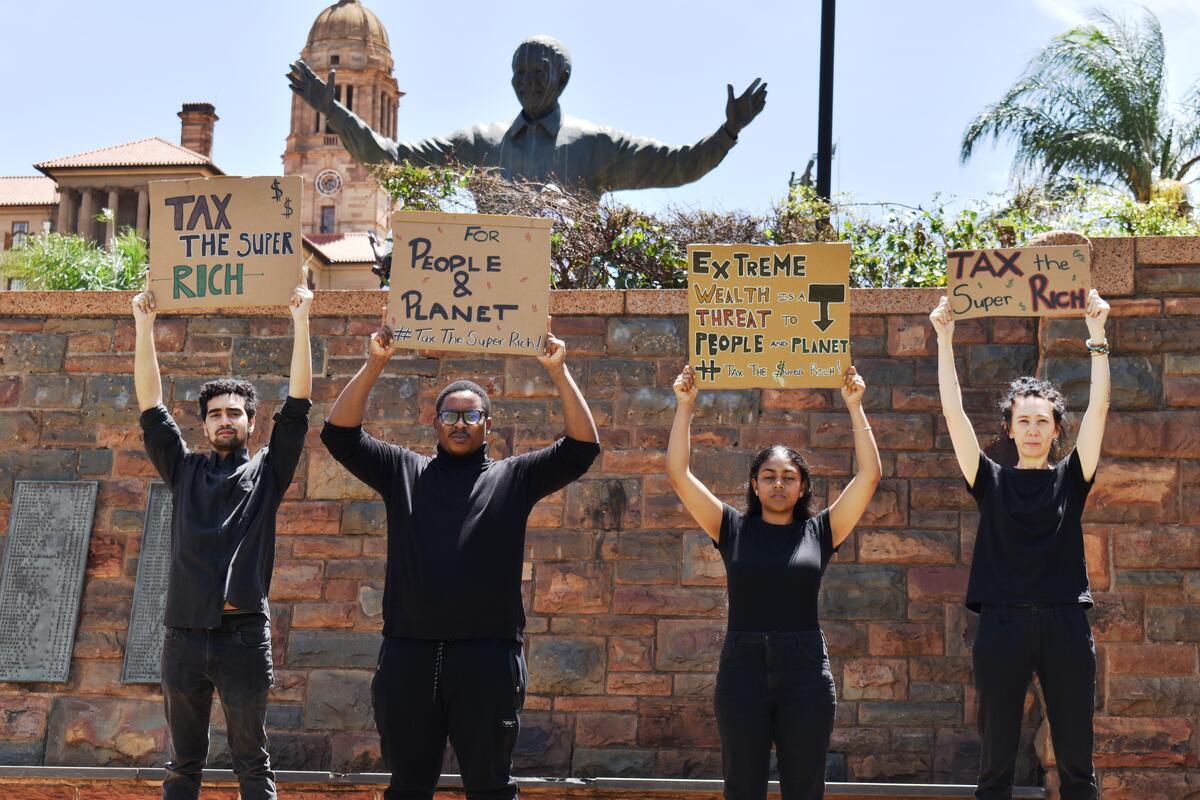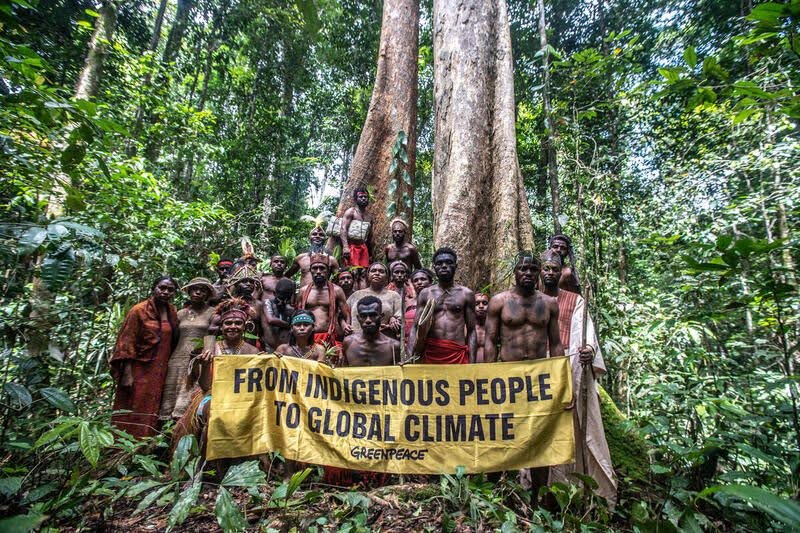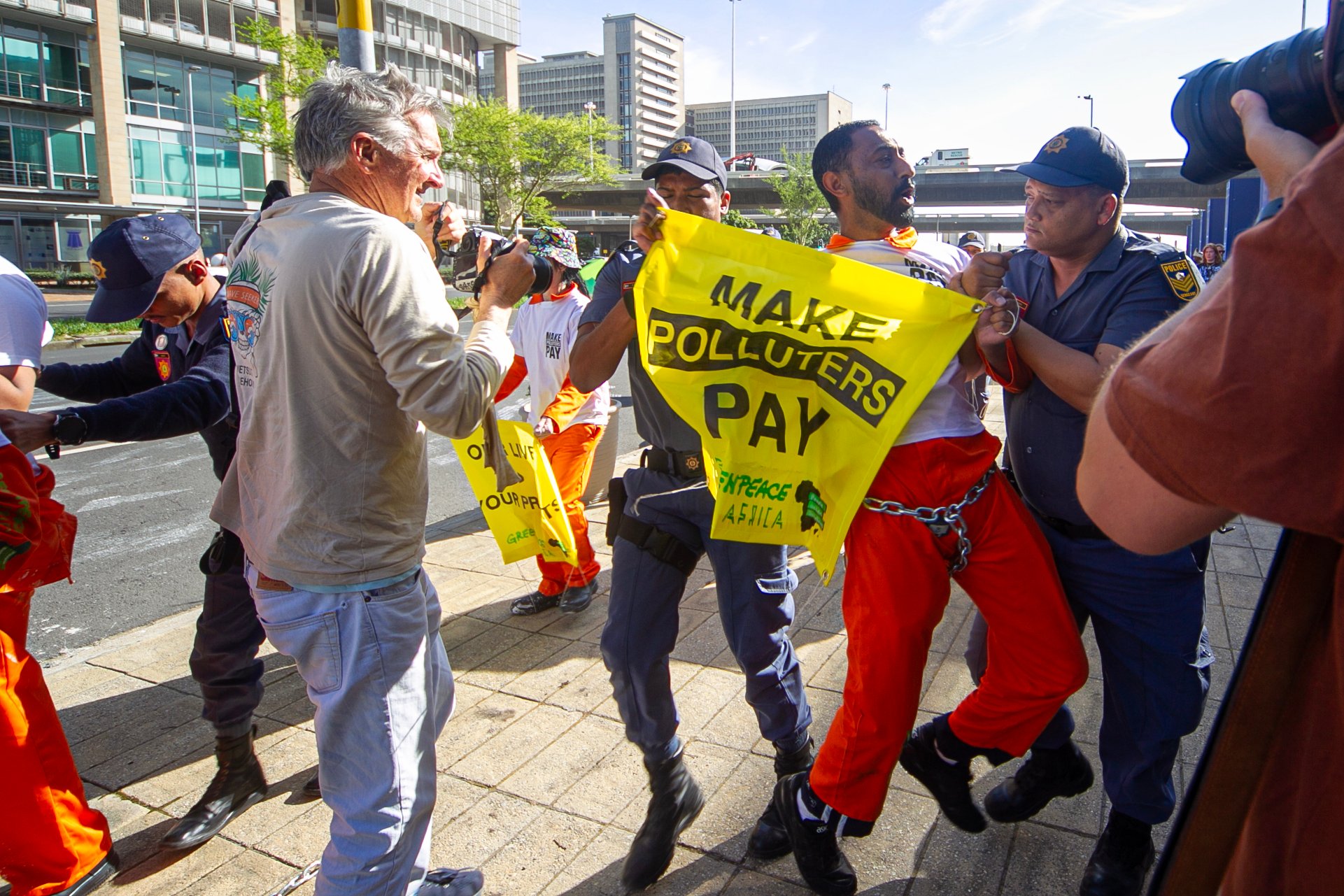28 December 2021: Today the Grahamstown High Court in Makhanda ordered Shell to immediately cease its seismic blasting along South Africa’s Wild Coast, while ordering Shell and the Minister of Mineral Resources and Energy to pay the costs of the application for the interim interdict.
Details of the judgement:
In granting the interdict sought by communities affected by the blasting and supporting civil society organisations, Judge Gerald Bloem said that Shell was under a duty to meaningfully consult with the communities and individuals who would be impacted by the seismic survey, and that based on the evidence provided, Shell failed to do so in the case of the applicant communities who hold customary rights, including fishing rights. They also hold a special spiritual and cultural connection to the ocean. It was thus crucial for Shell to consult these communities and understand how the survey may impact upon them. They did not. The judge found that the exploration right, which was awarded on the basis of a substantially flawed consultation process is thus unlawful and invalid. The applicants’ right to meaningful consultation constitutes a prima facie right which deserves to be protected by way of an interim interdict.
On irreparable harm:
The applicants rely on cultural and spiritual harm; the threatened harm to marine life; and the negative impact on the livelihood of small-scale fishers, arising from the harm to marine life. In its answering affidavit, Shell elected not to deal with the aspect relating to the threat of harm to the applicant communities’ cultural and spiritual beliefs, the applicants allegations in that regard are accordingly undisputed. The applicants also provided a massive body of expert evidence on the threat of harm to marine life, and this evidence establishes that, without intervention by the court, there is a real threat that the marine life would be irreparably harmed by the seismic survey. Against the acceptance of the body of expert evidence, Shell’s denial that its activities will have an adverse impact on marine life cannot be sustained. The judge was satisfied that the applicants have established a reasonable apprehension of irreparable harm to marine life. In addition to the harm to marine life, the applicants have also established how the seismic survey will firstly, negatively impact on the livelihood of the fishers, and secondly, cause cultural and spiritual harm.
Costs:
Since the applicants were successful in obtaining the interim interdict, and because Minister Mantashe also opposed the application, the Minister and Shell are accordingly ordered to pay the applicants’ costs.
Next steps:
Shell has been interdicted from undertaking seismic survey operations pending the finalisation of Part B of the application. A court will need to determine whether or not Shell requires an environmental authorisation obtained under NEMA, when part B of the application is dealt with at a date yet to be determined. The Applicants may also challenge the awarding of the exploration right based on the failed consultation. Shell may appeal the interim interdict, but it will not suspend the order at this stage.
Responses from applicants:
“The voices of the voiceless have been heard. The voices of the directly affected people have at last been heard, and the constitutional rights of indigenous people have been upheld.
This case reminds us that constitutional rights belong to the people and not to government, and that the only way that we can assure that the rights of indigenous people are living – and not just written on paper – is if we challenge government decisions that disregard these rights. This victory is hugely significant because we have made sure that the rights of indigenous communities are kept alive.” – Sinegugu Zukulu, Sustaining the Wild Coast (SWC)
“Today’s judgment marks one of the important milestones in our lifetime as people of not only Pondoland but South Africa, Africa and the world at large. We – the people – we took a stand in fighting against the BULLYING by Politicians, tenderpreneurs, the so called investors who undermine and threaten our livelihoods as ordinary people. The extraction of our natural resources is not a solution for so-called “poverty stricken communities” but a get rich quick scheme of those in power as well as financial control to the greedy Mafias of this world. We are living in borrowed time where money cannot buy their immunity; the mafias must be warned.” – Nobuntu Mazeka, Sustaining the Wild Coast (SWC)
“This case is about making sure that profit making does not override human rights. It is about making sure that the voices of rural communities are as important as the voices of the elite. The case is not just about Shell – it is about both protecting human rights and animal rights which are both enshrined in the constitution. As coastal communities we have relied on the sea for centuries – and we are glad that the judge has recognised that our ocean livelihoods must not be sacrificed for short term profit.” – Nonhle Mbuthuma, Amadiba Crisis Committee
“I feel impressed and very, very happy and proud that the court has listened to our voices – the people living on the coast. That for me is a big thing, because most of the time we feel that our government is not interested in listening to us – their people.
Also, winning in this court case means that we are not alone – the courts are with us in protecting our resources – which are the resources of the citizens of all South Africans. A decision against Shell is a decision to protect the ocean – which is ourselves. This is a decision for all citizens of South Africa – not just the residents of the coast. As residents of the coast it is our responsibility to give a shout so that everyone can hear what’s going on around us. And then we work together to protect our resources for future generations so that they can live the life we are living today like our forefathers did. So this judgement is a big win for all of us – citizens and government – the whole of South Africa. I am so happy. Wow!”- Siyabonga Ndovela, Amadiba Crisis Committee
Responses from attorneys:
“The case has huge significance in that it shows that no matter how big a company is, it ignores local communities at its peril. This case is really a culmination of the struggle of communities along the Wild Coast for the recognition of their customary rights to land and fishing, and to respect for their customary processes. The Amadiba and Dwesa-Cwebe communities fought for such recognition in earlier cases, and the Makhanda High Court reminded the state and Shell today, once again, that the indigenous rights of communities are protected by the Constitution from interference, no matter how powerful the intruders are.” Wilmien Wicomb, Legal Resources Centre
ENDS//
Notes to editor:
Judgment & previous PR attached.
Counsel
- The judgment was made by Judge Gerald Bloem.
- Applicants’ counsel: Tembeka Ngcukaitobi SC; Emma Webber; Nikki Stein instructed by Richard Spoor Inc and Legal Resources Centre
- Third to Fifth Respondents’ (Shell) counsel: Adrian Friedman; Lauren Crow
- First Respondent’s (Minister Mantashe) counsel: Olav Ronaasen SC
- Minister Creecy abided the outcome of the application.
The founding affidavits and supplementary affidavits with expert reports can be found here.
Cullinan & Associates brought a previous urgent interdict application on behalf of Border Deep Sea Angling Association, Kei Mouth Ski Boat Club, Natural Justice and Greenpeace Africa. The court denied the application and ordered the applicants to pay the legal costs of Shell and the Minister of Minerals and Energy. The applicants filed an appeal to the judgment last week which found that there was no reasonable apprehension that Shell’s seismic blasting would cause irreparable harm.
Relevant press releases refer:
- https://naturaljustice.org/massive-blow-for-the-wild-coast-urgent-interdict-denied/
- https://naturaljustice.org/urgent-interdict-filed-to-protect-the-wild-coast/
- https://naturaljustice.org/shells-seismic-survey-if-we-have-to-go-to-court-we-will/
The applicants in both cases are calling on the public to donate to the united legal effort to stop Shell here, with an initial target of raising R3 million by 5 January 2022. The applicants in both cases wish to challenge the exploration right which Shell and others rely on to search for oil and gas of the Wild Coast and Algoa Bay, regardless of the final outcome of the two interdict applications.
For media enquiries contact:
- Sinegugu Zukulu +27 724 285 109
- Siyabonga Ndovela +27 710 084 989
- Nonhle Mbuthuma +28 763 592 982
- Wilmien Wicomb, Legal Resources Centre +27789208366
- Katherine Robinson, Natural Justice +27 762 276 517
- Chris Vlavianos, Greenpeace Africa [email protected]rg +27 798 837 036




Discussion
Well done activists and lawyers! A mighty blow for the ocean and the people who depend on it ....
Thank you for your support. #PeoplePower 💚
Great news indeed
Thank you for your support.
Great news indeed
GreenPeace and the team, thanks for all the great work you doing.. the Captain of our Planet.
Thank you for your support.
Well done Guys Keep at it Oil Has run the weold(dislexia)for to long. Just remember Even electric motors need oil. Petrol is a waist product of lubricating oil
Thank you for your support. We need to protect our fragile planet at all costs. #PeoplePower 💚
C'est une tres bonne nouvelle mais il faut maintenir la pression jusqu'a la victoire finale! Le travail d'alertes et de mobilisation des defenseurs de l'environnement pour cette cause commune doit donc se poursuivre!
Merci pour votre soutien. En effet, nous avons besoin d'une interdiction sismique permanente.
Thank you. Thank you. Thank you. What a thing. Keep your eyes peeled, Shell will continue to find objects of desire for their shareholders. These are not nice people.
Thank you for your support. Indeed, we need a permanent seismic ban. Kindly take action here>>>> https://act.gp/3D7IjF6
Thank you for helping to protect our environment from the greedy, evil, money hungry "elite". What a huge win for SA and its citizens.
Thank you for being so supportive. We have won the battle but not the war yet. We need a permanent ban on seismic testing.
Excellent result! Well done!
Thank you for your support. #PeoplePower
Another defeat for South Africa and the environment. Now the gas needed to support the solar and wind new-built will have to be either imported from afar at great expense, or the Karoo fracted.
Thank you for your comment. The UK, the EU and the USA have pledged USD 8.5 billion to support South Africa’s transition away from coal and towards cheap and clean renewable energy. How does South Africa allow this project to work with its commitment to phase-out fossil fuels?
victory
Thank you for your support. We won the battle now we need to win the war, we need a permanent seismic ban to be implemented. Kindly take action here>>> https://act.gp/3o8iGjz
At last the little people voices were heard and recognized. What a great win. Let's keep fighting against those whose greed and unsustainable short term goals are to destroy exploit our planet's resources, regardless of the consequences for the nature, the environment, and humans.
Thank you for your comment. #PeoplePower 💚
taking on Goliath, but right is might. Brief pause for breath on latest ruling, then continue the fight. Respect for all involved, it will not , must not be allowed.
Thank you for your comment. The fight is not over; kindly take action here>>>> https://act.gp/3D7IjF6
Please stop these ridiculous acts for money go and make a mess somewhere else . #enough of this corporate bullshit for money
Thank you for your comment. Indeed, we can not let corporates destroy the planet for profit. Kindly take action here>>>> https://act.gp/3D7IjF6
great news! Thank you for sharing!
Thank you for your support.
Thank you for the great news!
Thank you for your support. Kindly take action here>>> https://act.gp/3o8iGjz
Good news! The rights of communities living close to the coasts must be recognized.
Thank you for your support 💚. We have won the battle, not the war; kindly take action here >>> https://act.gp/3D7IjF6
It looks like the Davids of Biblical times have risen to withstand the almost overwhelming power of wolves in sheep skins. Well done activists of this otherwise precious God given gift. Politicians, we must all realize, have never entertained, in any manner whatsoever, our aspirations, dreams, values and even our livelihood more than their pursuit for all the monetary fruits the can glean from the very citizens they purportedly represent.
Thank you for your support. We can not allow profit to destroy oceans eco-System.
I think shell must be burned for their ignorent.
Thank you for your comment. We need safe nonviolent measures to put a permanent ban on seismic blastings.
Thank you for all the support to stop this
💚
A wonderful victory. Thanks to you, the community for getting this win. Keep on keeping on. Let us know how to support you from afar. This battle was what Zakes Mda wrote about in his great novel, "The Heat of Redness" published in 2020
Thank you for your support💚. #PeoplePower